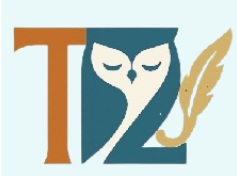Experience a captivating journey through my in-depth book review of “Can’t Hurt Me by David Goggins”. Uncover plot intricacies, character development, and literary techniques. Find out if this book deserves a spot on your shelf.

When Your Mind Says “I’m Done,” You’re Only 40% There
Have you ever felt the crushing weight of your limitations? The moment when every fiber of your being screams “stop,” yet something deeper whispers that there might be more untapped potential within you? In “Can’t Hurt Me,” David Goggins transforms from an abused child living in poverty to a Navy SEAL, ultramarathon runner, and the “Fittest Man in America.” His raw, unfiltered journey isn’t just inspiring—it’s a blueprint for mental fortitude that challenges the very foundations of what we believe possible for ourselves.
What separates Goggins’ story from countless other self-help narratives is his 40% Rule—the uncomfortable truth that most of us tap into less than half our actual capabilities. Through extraordinary feats, such as losing 100 pounds in three months to qualify for military service and setting a Guinness World Record for pull-ups, Goggins doesn’t just motivate—he demolishes excuses. His “accountability mirror” forces brutal self-honesty, while his “cookie jar” method offers practical tools for anyone seeking to push beyond perceived limitations.
In this review, we’ll explore Goggins’ remarkable journey from rock bottom to excellence, unpack the core philosophies driving his success, examine his practical tools for building mental resilience, revisit his most challenging experiences, and discuss the profound impact his message can have on readers willing to embrace discomfort as the pathway to growth.
Want to transform your limits into possibilities? Get “Can’t Hurt Me” on Amazon and unlock Goggins’ proven strategies.
The Journey from Rock Bottom to Excellence
Overcoming a traumatic childhood marked by poverty and abuse
David Goggins, born on February 17, 1975, in Buffalo, New York, faced extraordinary adversity from an early age. His childhood was characterized by a turbulent home environment that included abuse and experiences of racism. Adding to these challenges, Goggins struggled with a learning disability and a stutter, which significantly contributed to his social anxiety. These early hardships created a foundation of trauma that many would find impossible to overcome.
Transforming from an overweight, depressed individual to an elite athlete
Perhaps one of the most remarkable aspects of Goggins’ story is his physical transformation. After a period of personal struggle, Goggins found himself weighing 300 pounds and suffering from low self-esteem. His turning point came when he watched a television program about Navy SEAL training, which inspired him to radically change his life. With unwavering determination, he embarked on an extremely strict diet and grueling exercise regimen. The results were astonishing—Goggins shed over 100 pounds in just three months, completely transforming both his body and mindset.
Becoming a Navy SEAL despite significant physical challenges
Goggins’ path to becoming a Navy SEAL was fraught with obstacles. His journey began in the United States Air Force, where he served from 1994 to 1999 as part of the Pararescue program. Later, he struggled to pass the Armed Services Vocational Aptitude Battery test, but his persistence eventually paid off. His transition to Navy SEAL training came after his dramatic weight loss, but even then, challenges continued to mount. Perhaps most significant was his diagnosis of sickle cell anemia, which temporarily sidelined him from SEAL training. Despite this serious health condition, Goggins refused to quit. He joined the Navy in 2001 and served until 2015, reaching the rank of Chief Petty Officer and becoming a member of SEAL Team 5. His military service earned him numerous accolades, including the Meritorious Service Medal and Combat Action Ribbon.
Setting a Guinness World Record for pull-ups
Goggins’ pursuit of excellence extended beyond his military career. In a testament to his extraordinary physical capabilities and mental fortitude, he set a Guinness World Record for completing the most pull-ups in 17 hours. This achievement stands as a physical manifestation of his “never quit” philosophy. Additionally, he demonstrated his extreme endurance by finishing third in the notoriously challenging Badwater Ultramarathon, one of many ultramarathons he completed while raising over $2 million for the Special Operations Warrior Foundation.
With this remarkable journey from rock bottom to excellence established, we can now explore the core philosophies that enabled such an extraordinary transformation. In the next section, we’ll examine the fundamental principles and mental frameworks that drive Goggins’ success and continue to inspire millions worldwide.
Core Philosophies That Drive Goggins’ Success
Having explored Goggins’ remarkable journey from rock bottom to excellence, we now turn to the fundamental philosophies that powered his transformation and continue to drive his success. These principles form the backbone of his approach to life and achievement.
The “40% Rule”: How most people only tap into a fraction of their potential
At the heart of David Goggins’ philosophy lies the “40% Rule” – a powerful concept that suggests when most people feel they’ve reached their limit, they’ve only utilized about 40% of their potential. This principle challenges the conventional understanding of human capacity, asserting that we possess far more reserves than we typically access. Goggins argues that most individuals stop at the first sign of discomfort or fatigue, never discovering the vast untapped resources within themselves. This rule serves as a direct challenge to self-imposed boundaries and encourages pushing well beyond perceived limitations.
Mental toughness is the key to unlocking the remaining 60% of capability
For Goggins, mental toughness is the essential key that unlocks the remaining 60% of human capability. He advocates for developing what he calls a “calloused mind” – one that has been strengthened through deliberately facing and overcoming difficulties. In a society that often prioritizes comfort, Goggins stands apart with his philosophy that emphasizes discomfort and relentless perseverance. He bluntly states, “You have to be willing to suffer in ways that others won’t,” highlighting that true mental fortitude is built through embracing, rather than avoiding, difficult challenges. This mental toughness allowed him to complete some of the most demanding training programs in the world, including Navy SEAL training and Army Ranger School, where only 49% of participants succeed.
Using setbacks as catalysts for personal growth
Rather than viewing obstacles as barriers to success, Goggins transforms setbacks into powerful catalysts for growth. His approach rejects complacency and embraces adversity as an opportunity to develop strength and resilience. Throughout his life, Goggins has repeatedly demonstrated this principle, whether overcoming learning disabilities that left him reading at a fourth-grade level during high school or pushing through extreme physical pain during ultramarathons. He doesn’t simply endure adversity; he actively seeks it out as a means of continuous self-improvement. This philosophy encourages confronting personal weaknesses directly and using them as stepping stones toward greater achievement.
The power of self-discipline and sacrifice
Self-discipline and sacrifice form the final pillars of Goggins’ success philosophy. He emphasizes that motivation is fleeting and unreliable, while disciplined habits and willingness to sacrifice comfort create lasting change. His remarkable achievements, such as completing 4,030 pull-ups in approximately 17 hours to set a Guinness World Record or running 100 miles in under 24 hours to qualify for the Badwater 135 ultra-marathon, demonstrate the extraordinary results that self-discipline can produce. Goggins’s no-nonsense approach urges individuals to take an honest inventory of themselves and make the difficult choices necessary for transformation.
With these core philosophies firmly established, we’ll next explore the practical tools for mental resilience that Goggins has developed and refined throughout his journey. These actionable strategies will show how anyone can begin applying these powerful principles in their own lives.
Practical Tools for Mental Resilience

Now that we’ve explored the core philosophies that drive Goggins’ success, let’s delve into the practical tools he offers for building mental resilience. These techniques have helped Goggins transform from his lowest points to achieving extraordinary feats of endurance and mental toughness.
The “Cookie Jar” Method for Gathering Motivation
One of Goggins’ most powerful mental tools is the concept of the “Cookie Jar” – a mental repository of past achievements and obstacles overcome. When facing seemingly insurmountable challenges, Goggins recommends reaching into this metaphorical cookie jar to draw strength and motivation from previous victories. This technique helps reframe current struggles by reminding yourself that you’ve conquered difficult situations before, building confidence in your ability to persevere through present challenges.
The “Accountability Mirror” Technique for Taking Personal Responsibility
The “Accountability Mirror” serves as a cornerstone of Goggins’ approach to personal development. This technique involves standing before a mirror, confronting your weaknesses, and writing down specific goals directly on the mirror’s surface. By literally facing yourself each day and acknowledging both your shortcomings and aspirations, you foster a heightened sense of personal accountability. Goggins emphasizes that this practice prevents excuse-making and promotes honest self-reflection, creating a foundation for genuine growth and transformation.
Pushing Beyond Perceived Physical and Mental Limitations
Central to Goggins’ philosophy is the “40% Rule” – the belief that when you feel like quitting, you’ve only tapped into about 40% of your true potential. This principle encourages “callousing the mind” through deliberately seeking discomfort and pushing beyond perceived limitations. Goggins advocates for regularly placing yourself in challenging situations that force growth, whether through grueling physical training or tackling difficult mental challenges. By staying uncomfortable and embracing the concept of “Failing Forward,” you can transform setbacks into valuable learning experiences that strengthen your resilience.
Celebrating Small Victories on the Path to Self-Mastery
While Goggins emphasizes relentless pursuit of excellence, he also recognizes the importance of acknowledging progress along the way. Celebrating small victories doesn’t mean becoming complacent—rather, it means recognizing milestones as evidence of your growing capabilities. This approach helps maintain the “hunger for success” that Goggins identifies as crucial for avoiding stagnation. By appreciating incremental improvements while continuously raising standards, you create sustainable motivation for the long journey of self-mastery.
With these practical mental resilience tools at your disposal, you’re better equipped to face life’s challenges with the same unwavering determination that Goggins demonstrates. In the next section, we’ll examine some of Goggins’ most challenging experiences, revealing how he applied these very techniques to overcome seemingly impossible obstacles.
Goggins’ Most Challenging Experiences
Now that we’ve explored the practical tools David Goggins developed for mental resilience, let’s examine the crucibles that forged these techniques. Goggins’ philosophy wasn’t developed in a classroom—it was born from some of the most grueling challenges imaginable.
Nearly failing out of high school due to personal struggles
Before becoming “the toughest man alive,” Goggins faced significant personal struggles that nearly derailed his education. His traumatic childhood created substantial obstacles that almost prevented him from completing high school. These early challenges became the foundation for his later philosophy about confronting the past and using accountability to drive personal transformation. By acknowledging these difficult beginnings in his journey, Goggins demonstrates that extraordinary achievement is possible regardless of where you start.
Losing 100 pounds in three months to qualify for military service
One of Goggins’ most remarkable physical transformations came when he decided to pursue military service. Faced with being severely overweight and unqualified for the rigorous standards of military entry, Goggins committed to losing 100 pounds in just three months. This extraordinary weight loss journey required him to push beyond what most would consider possible, establishing his pattern of rejecting conventional limitations. This experience exemplifies his “accountability mirror” concept, where he refused to accept excuses and instead confronted the brutal reality of what needed to be done.
Enduring the rigorous world of Navy SEAL training
Goggins’ experience in Navy SEAL training represents one of the most demanding challenges in his life. As detailed in his journey, he didn’t just complete SEAL training once—he endured multiple attempts, facing both physical and psychological barriers that would have defeated most people. During this training, Goggins learned to “callus his mind,” developing mental toughness through intentionally seeking out discomfort rather than avoiding it. This period transformed his understanding of human capacity and helped him develop the belief that most people operate at only 40% of their true potential.
Conquering the extreme physical demands of ultramarathons
Perhaps nothing better illustrates Goggins’ philosophy than his approach to ultramarathons. Unlike most endurance athletes who seek efficiency and comfort, Goggins deliberately embraces suffering in these extreme events. His participation in some of the world’s most grueling races reveals his extraordinary resilience:
- In the Badwater 135, a punishing 135-mile race through Death Valley, Goggins battled extreme dehydration and hallucinations but refused to quit.
- During the Moab 240, he completed 240 miles despite severe foot injuries and sleep deprivation.
- At the Leadville 100, Goggins pushed through altitude sickness in a high-elevation environment that breaks many seasoned athletes.
- The HURT 100 tested his ability to navigate treacherous terrain while maintaining mental focus.
- Perhaps most dramatically, during the San Diego One Day 24-Hour Race, Goggins experienced kidney failure yet still completed 101 miles.
These ultramarathon experiences embody his famous mantra: “You don’t stop when you’re tired. You stop when you’re done.” Through these extreme tests, Goggins has demonstrated that endurance is primarily a mental battle rather than merely a physical one.
With these extraordinary challenges as context, we can better understand how Goggins’ experiences translate into practical impacts for readers seeking to transform their own lives, which we’ll explore in the next section on “Impact and Takeaways for Readers.”
Impact and Takeaways for Readers
Having explored Goggins’ most challenging experiences, we can now examine how these trials translate into valuable lessons for readers. The raw intensity of his journey offers more than just inspiration—it provides a blueprint for mental fortitude that can be applied to any life circumstance.
How Goggins’s Direct and Candid Narrative Style Delivers His Message
Goggins’ approach to storytelling is unapologetically honest, creating a powerful vehicle for his core message. Unlike motivational works that offer temporary inspiration, his candid narrative emphasizes the difference between fleeting motivation and lasting obsession. By sharing his journey with brutal transparency, Goggins demonstrates that true transformation requires confronting uncomfortable truths about oneself. His direct style reinforces the concept of being “uncommon”—pushing beyond societal norms to achieve excellence in whatever path you choose, whether as a parent, teacher, or professional in any field.
Practical Challenges to Confront Your Limitations
The book doesn’t merely inspire—it challenges readers to take action through specific mental exercises:
- Self-acceptance as a foundation: Goggins advocates recognizing and tripling down on personal flaws rather than hiding from them. This uncomfortable self-honesty becomes the starting point for developing mental toughness.
- Scheduling discomfort: Readers are encouraged to intentionally incorporate challenges into daily life, effectively “callousing” the mind against difficulties.
- Building a “Cookie Jar”: Creating a mental repository of past victories to draw strength from during tough times—a practical tool for anyone facing obstacles.
- Breaking the 40% barrier: Goggins asserts that most people quit after utilizing only 40% of their capabilities, challenging readers to push beyond this self-imposed “governor” limiting their potential.
Applying Goggins’ Principles to Overcome Personal Obstacles
Goggins’ philosophy offers practical applications for confronting personal challenges:
- Leading by example: Focusing on others during difficult times shifts attention away from self-pity.
- Running your own race: Disregarding societal expectations and comparisons with others in favor of internal competition against yourself.
- Earning your place daily: Treating each day as a fresh opportunity to improve, recognizing that yesterday’s achievements don’t guarantee today’s success.
- Self-reliance mindset: Understanding that life won’t lift you when you fall—you must develop the strength to rise on your own.
Achieving Greater Fulfillment Through Mental Discipline
The ultimate takeaway from Goggins’ work is that fulfillment comes through disciplined self-mastery:
- Detesting mediocrity: Actively rejecting average performance in favor of constant improvement.
- Time management and recovery: Using time efficiently while recognizing the importance of rest in sustaining long-term excellence.
- Embracing failure: Viewing setbacks as essential learning opportunities rather than defeats.
- Cultivating humility: Understanding that greatness must be continuously earned through persistent effort.
By embracing these principles, readers can transform Goggins’ journey into a framework for addressing their challenges, making the pursuit of self-improvement a lifelong commitment rather than a temporary endeavor.

David Goggins’ story in “Can’t Hurt Me” stands as a powerful testament to the untapped potential that lies within each of us. Through his journey from rock bottom to excellence, Goggins demonstrates that our greatest limitations are often self-imposed. His core philosophies—embracing discomfort, using the accountability mirror, and applying the 40% Rule—offer practical frameworks for anyone seeking to break through their perceived boundaries. The mental resilience tools he shares, particularly the “cookie jar” method of drawing strength from past accomplishments, provide actionable strategies for navigating life’s inevitable challenges.
As you close this book, consider how Goggins’ experiences might reshape your approach to obstacles in your own life. Whether you’re facing personal hardships, professional setbacks, or simply the daily grind, his message remains clear: we are capable of far more than we believe. The true value of “Can’t Hurt Me” lies not in inspiring temporary motivation but in challenging readers to permanently elevate their standards and embrace the difficult path to self-mastery. Take Goggins’ lessons to heart—celebrate small victories, push beyond comfort zones, and remember that in your moments of greatest challenge lies your greatest opportunity for growth.
📚 Get Your Copy
Ready to break free from negative thought patterns?
→ Get Can’t Hurt Me on Amazon
→ Listen on Audible
As an Amazon Associate, I earn from qualifying purchases at no extra cost to you.
Related Book Reviews You Might Like
- The Courage to Be Disliked – Another perspective on freedom from limiting beliefs
- Atomic Habits – Practical techniques for changing thought patterns
📚 Love soulful reads and life-changing insights? Subscribe to The Zen Journal and receive thoughtful book reviews, personal growth reflections, and mindful living tips — straight to your inbox.
